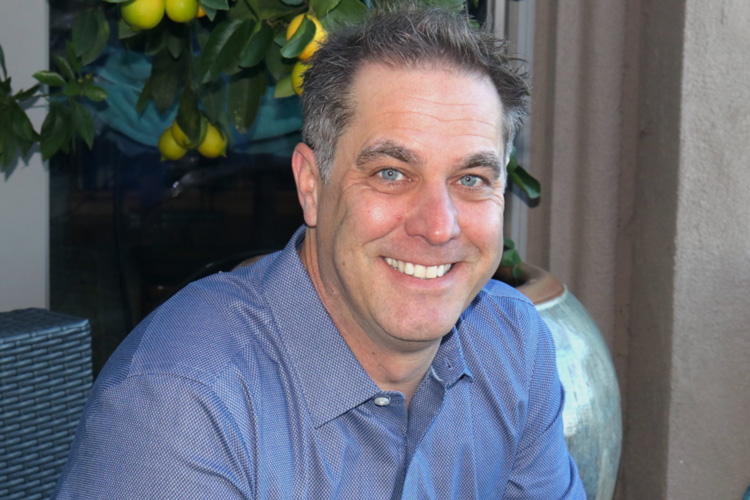Andrew Dillin Shares Lurie Prize for Work on Aging

Andrew Dillin shared the 2022 Lurie Prize in Biomedical Sciences. (Photo courtesy of Foundation for the National Institutes of Health)
Andrew Dillin, the Thomas and Stacey Siebel Distinguished Chair in Stem Cell Research and a Howard Hughes Medical investigator in UC Berkeley’s Department of Molecular and Cell Biology, shared the 2022 Lurie Prize in Biomedical Sciences for work on the aging process.
The prize, awarded annually by the Foundation for the National Institutes of Health (FNIH), recognizes outstanding achievements by promising scientists aged 52 or younger. Dillin shared the prize with Anne Brunet of Stanford University, who conducts parallel work on aging.
The two “pioneered independent but complementary research that illustrates the evolution of two master regulators of aging at the cellular level,” according to a statement from the foundation.
Each awardee will receive a $50,000 honorarium.
“The Lurie Prize greatly validates the work of my lab,” said Dillin. “Frankly, we have always seen ourselves as a bit on the fringe, doing this quirky, funky, basic science that could nevertheless really have an impact on people. Receiving one of the top awards in the field of biomedical research provides a huge boost to our work and to the field of aging research.”
Dillin’s work has revealed how mitochondria in neurons of the brain coordinate responses throughout the body that impact lifespan, while Brunet has shown how specific biochemical modifications of the protein structures around which an organism’s DNA is organized can extend its life and that of its descendants.
“The FNIH is delighted to award its 10th annual Lurie Prize to two individuals whose landmark discoveries addressing the genetic and molecular mechanisms of aging provide insights with tremendous potential to improve longevity and quality of life as humans age,” said David Wholley, interim president and executive director of the FNIH. “Age is a primary driver for so many diseases, including cardiovascular disease, cancer, diabetes and Alzheimer’s disease. Doctors Brunet and Dillin are answering questions about fundamental processes both within the cell and across entire organisms that promise to help untangle the mysteries of aging and potentially of some of these diseases.”
Dillin’s lab focuses on why organisms, as they age, begin to lose control over the integrity of their proteomes — the full complement of proteins produced by each cell in the body. His work revealed that aging is coordinated across the body, and he is exploring the function of mitochondria — structures that govern energy production in the cell — as a means of communicating across tissues and organs.
His team developed and applied techniques to manipulate signaling pathways that involve specific proteins within a cell, which allowed him observe how tiny disturbances may affect the physiology of the whole organism. By reducing mitochondrial function in several cells in the nervous system, Dillin observed life extension in model systems ranging from worms to mice. Dillin’s larger goal is to apply his findings toward uncovering new therapeutic strategies for the treatment of age-related pathologies in neurological disorders such as Alzheimer’s and Parkinson’s diseases.
“Our efforts to unlock the architecture and the function of the cell in the context of an entire multicellular organism are an example of basic research that has implications across all of science,” Dillin said. “I’m also so grateful to be sharing this award with my esteemed colleague Anne Brunet. We started our labs at the same time, and our work ended up complementing and overlapping with each other. The whole world of research in aging has been open to and supportive of us both, and I am thrilled to be contributing to it.”
Established by Congress in 1990, the FNIH is a nonprofit organization that creates and manages alliances with public and private institutions in support of the mission of the NIH, the world’s premier medical research agency. The Lurie Prize was made possible by a donation from philanthropist Ann Lurie, president of the Ann and Robert H. Lurie Foundation and president of Lurie Holdings Inc.
